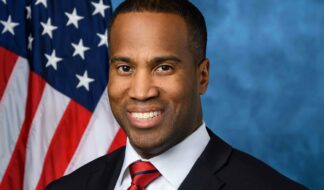Well, it's inevitable. No matter how fabulous we are and how bright our light may shine, we are all getting older. With each birthday, another year passes as we transform from being a rising star to a seasoned warrior.
We are all getting older, like it or not.
And as we get older, quality of life, health care, rehabilitation, assisted living and all the other medical needs our aging bodies may require move to the front burner as issues of concern. Especially in these days of economic downturns with so many uninsured or under insured, who has not wondered what those "golden years" are going to look like.
Getting older can be especially hard for members of the LGBT community, who may have chosen not to have children, are estranged from their biological family and are without a partner or otherwise alone. I know it's a question I've asked myself: "Who will take care of me?" I envision myself many years for now, wandering about my apartment cluttered with books and other memorabilia being followed around by five or six cats, having children point to my building saying "That's where that crazy old lesbian with all the cats lives." Pretty scary!
Fortunately, I will not have to go into the golden years alone, but the questions still remain.
Now I wonder of my partner and I, "Who will take care of us?" If one of us is hospitalized or had to go into longterm care, will our relationship be recognized and respected? Are there support systems in place to allow us to stay in our home as long as we are able? Would the other one have the necessary support to be able to continue to live independently?
Besides highlighting one of the most common fears everyone has about growing old, it also shines a spotlight on the special vulnerability of older members of our community and offers yet another compelling argument for marriage equality and full equal rights for all LGBT Americans.
Many of the safety nets available for senior citizens are denied to gay elders, despite their having helped pay for the multitude of protections that their straight friends and neighbors enjoy such as social security, Medicaid, spousal benefits even 401(k) plans.
A surviving gay partner receives no Social Security survivor benefit. When a gay elder needs Medicaid-financed nursing care, his or her partner can lose their jointly-owned home because gay couples are not covered by federal rules protecting the assets of nursing home resident's spouses. Surviving gay partners suffer an immediate 20-percent tax hit on inherited 401(k) money. Gay couples enjoy none of the Federal protections provided for surviving spouses.
Nationally, 10.2 percent of adults age 65 or older lived below the poverty level in 2000. Lack of protections guaranteed to their straight counterparts make the golden years for many LGBT couples anything but golden.
But it's more than the financial aspect of growing older – the "who" is every bit as important as the "how."
LGBT elders are often vulnerable to being cruelly victimized by discriminatory attitudes. An example, reported by Deb Price, told of a lesbian couple who had been together 42 years. When they needed nursing home care, relatives put them in separate institutions and refused to let them even see each other. Older LGBT Americans, fearing neglect or abuse at the hands of hostile nursing home personnel, have gone back into the closet after living openly all of their lives. These fears have been well documented.
I had a peek at the future recently when my partner had hip replacement surgery. When we checked in for surgery, I boldly proclaimed myself as "partner" when they asked for my relationship to the patient. There was a moment when I wondered if maybe I should have said sister or cousin but the clerk just smiled and told me where to wait. Later when they came out to update the family about her condition, the patient care rep came and talked to me first, even though her brother and sister had arrived. When she awoke and asked for me, I was immediately taken back to recovery to see her.
The following week, shortly after she had come home, I was in an auto accident which totaled my car and left me with a fractured sternum. My first thought was "Who will take care of us?" My answer: The Sisterhood of the Traveling Walker. My friend Jan arrived on Sunday with the walker – it had already been used by two other friends. My friend Shea sat with me at the hospital. My friend Susan comforted my partner and I with words and energy. Judith and Ann planned meals. Lee went to the store for cat litter. We were family and I had all my sisters with me!
Like so many other LGBT Americans, I have a family, a community who will love, care for and look out for me. It is our community's strength, the glue holding us together, our shield against the bias, ignorance and discriminatory attitudes plaguing us from the cradle to the grave. It's all we have until we achieve full equality under the law – not just in Michigan, but across the land.
So I look forward to my golden years with concern but hope that this country will soon acknowledge and correct the gross inequities inflicted upon the LGBT community and our elders. As to "Who will take care of me/us" I have no worries. I have The Sisterhood of the Traveling Walker.









